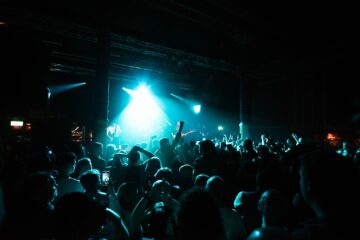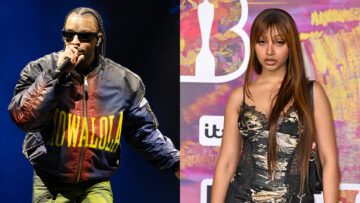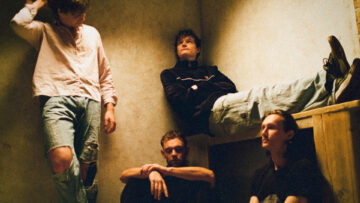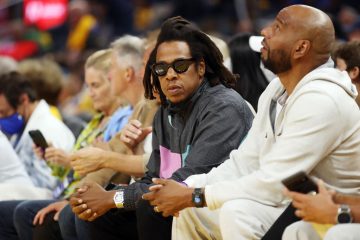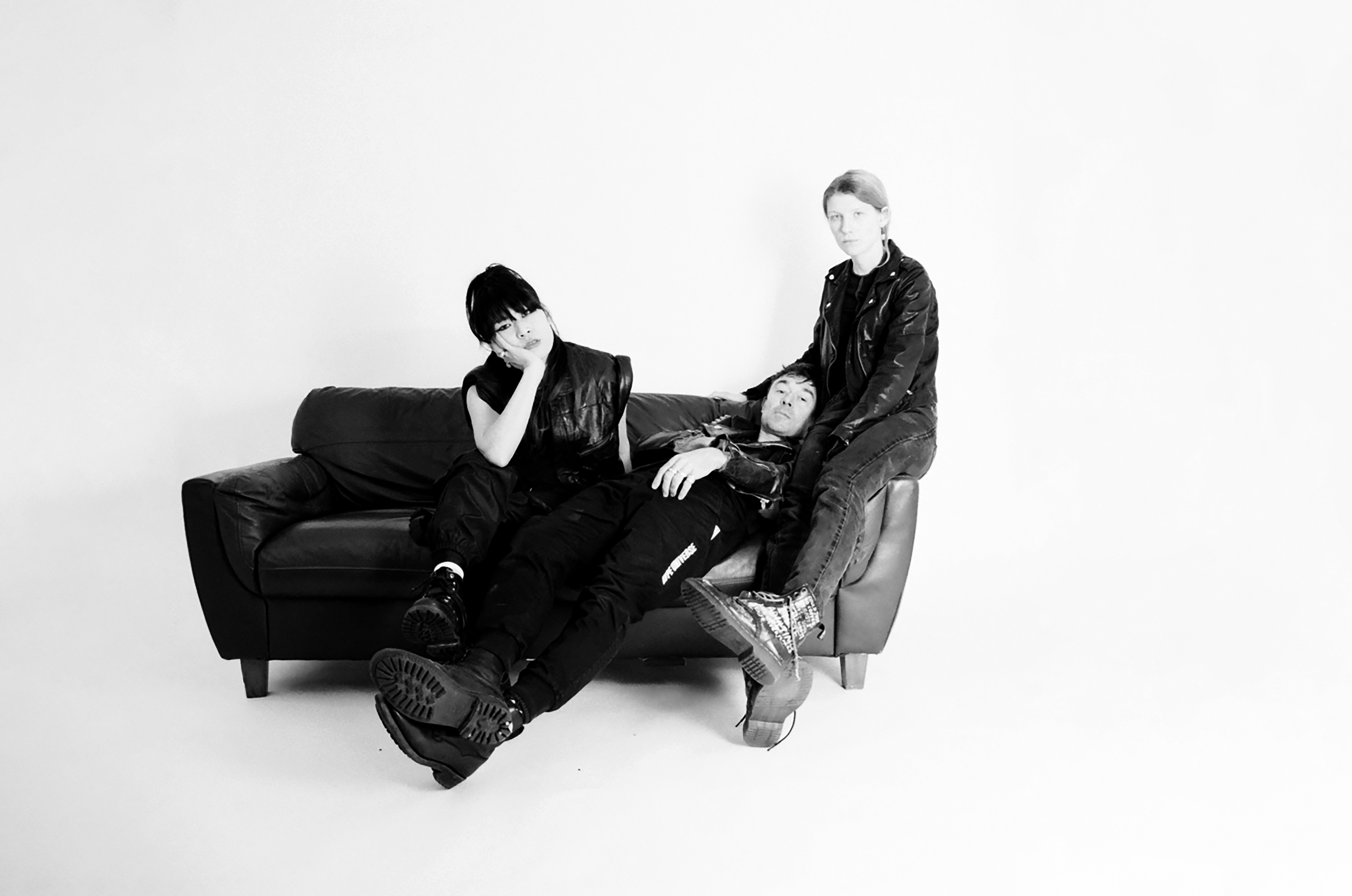
It’s been a decade since the band’s previous release and as such there’s a lot this record mulls over – not least the departure of other founding bandmate Milo Cordell in 2013, and a whirlwind tour with Wolf Alice in 2018.
Furze’s life has been non-stop music – from being signed on a million-pound deal when he was still a teenager, to DJing in L.A. during The Big Pink’s decade-long hiatus. In this in-depth chat, he dissects it all.
Congrats on the new record, A Love That’s Ours, how are you feeling about its release?
It’s a bit daunting. It’s the stage now where I’m gonna get judged, which is inevitable, but I’ve worked on it for this long, put this amount of work into it and then you get marked out of five. This one is more emotional than any of the other records, because it’s been somewhat of a journey to get to this point.
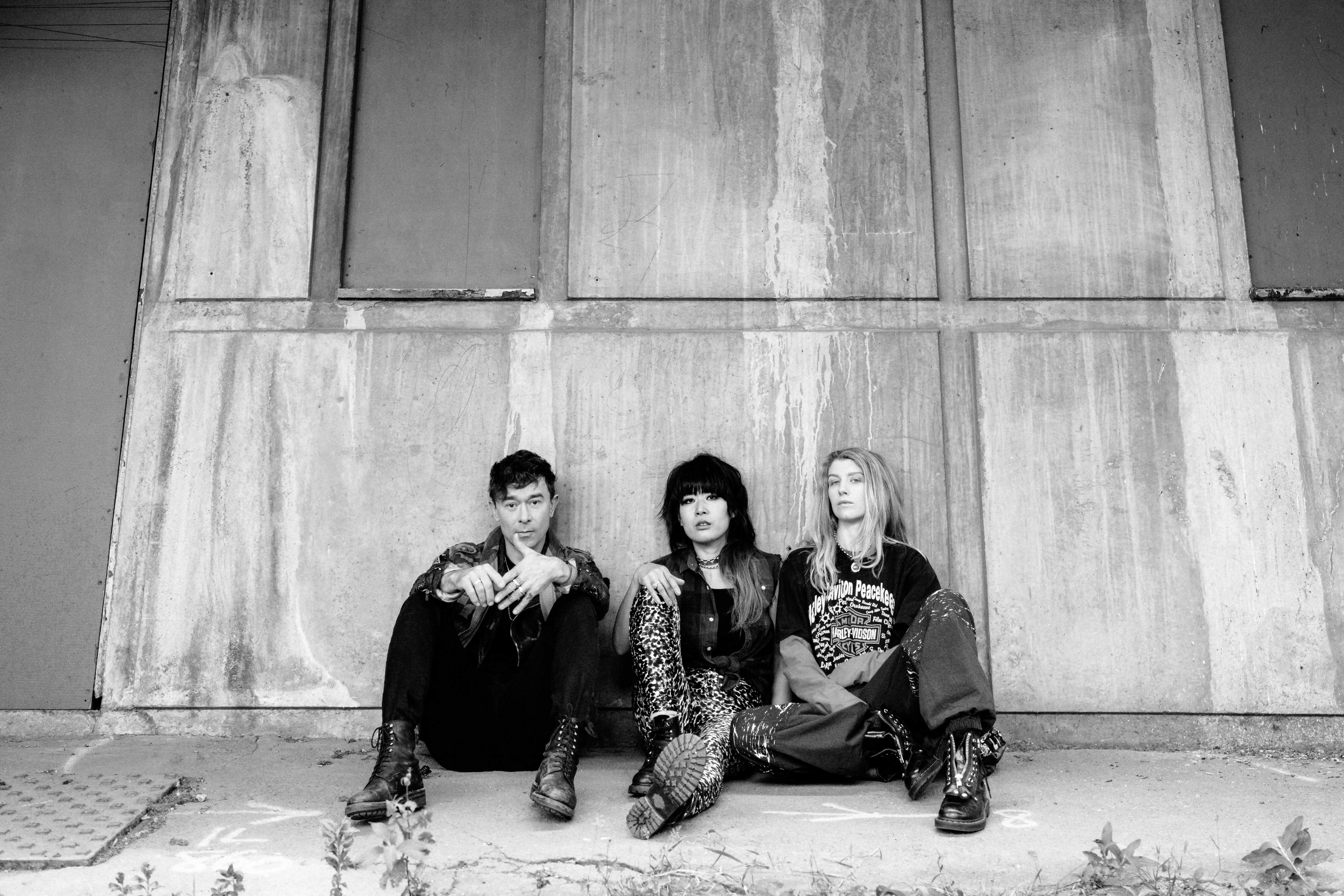
Photo: Emma Ledwith (Photography Limited)
But I think I’ve done the best record to-date; I’ve put my heart and soul into this one and I hope that comes across in the music. It’s difficult having been away for so long. It’s been ten years; I know exactly what I’ve been doing every year, but how it all went away that quickly is mad.
Are you saying that by putting yourself more emotionally into this record, the criticism might feel more personal?
Yeah, because I think this record became almost like my therapy, through my life and my journey. I wasn’t really trying to make a concept record, but it ended up having a theme to it; this concept of almost losing everything, and sticking to it, and making sure I regain everything that is true and that I love. Every song has a slightly different theme, but this element of introspectiveness and underlying sense of hope runs throughout; if I just stick to my guns I’d achieve the end-goal – that’s the core of the songs.
Absolutely, there feels like an emotional yearning for something throughout the record. Of course, you can’t surmise a decade briefly, but what have you been up to? You had a stint DJing in L.A., is that right?
We finished touring Future This towards the end of 2013, early 2014; we went off to Asia and did some shows. So I didn’t start getting into the third record until late 2014. Then I think I had maybe two or three albums’ worth of music in that time; [but] when I thought I’d achieved the end-goal, it didn’t quite hit the mark. There was an element that I should have taken more of a solid break. Milo [Cordell] left the band after the second record, and I think I actually did sort of stop The Big Pink, but maybe not completely, mentally. I just needed a bit of a break from it.
Those first two records were so intense, especially the first. We toured that for about three years. We were constantly out. Then the second record was done in such a whirlwind. Just physically, we were really tired. So, I think without really knowing it at the time, I’d kind of put myself on a sabbatical from The Big Pink.
Also, the music landscape around 2015 was such that guitar music was a bit of a dirty word; there wasn’t much love for indie music, especially in the UK. I kind of shared this feeling with Jamie Hince from The Kills, and he had the same idea. We actually both moved to L.A. together. And when we arrived, it was just insane; I felt there was something really incredible going to happen in L.A., like New York in the late ‘70s, early ‘80s.
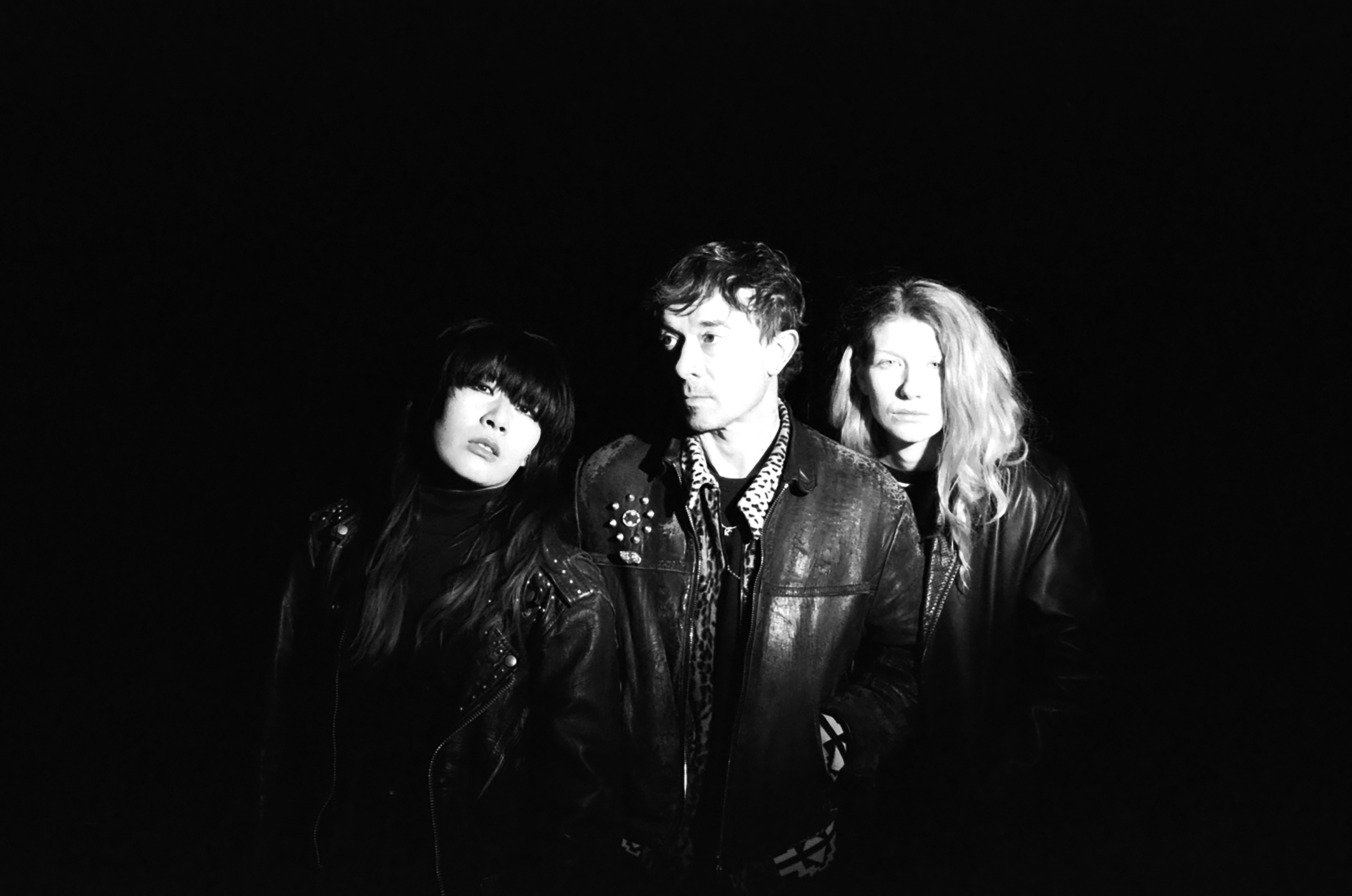
Photo: Ashley Rommelrath
The energy there around ‘15, ‘16 was electric. There was a real sense of freedom. We were going out most nights and that’s when I fell into DJing more than I ever had. I found myself doing a weekly in one club place and then it spiraled into me DJing more, and running a few club nights.
You were offered a venue to run, is that right?
I was eventually. It was these weird things where suddenly there was 200 or 300 people in this little bar-club in East Hollywood; I’d do another night and there’d be 200 people. Then suddenly I was being headhunted for these West Hollywood clubs. I guess, without knowing it, I was pretty good at putting on nights and creating an atmosphere that people were into.
The Roosevelt Hotel venue said to me, ‘You can play here, you can drink for free, you can eat for free; all your friends can drink for free,’. I said that sounds alright, they said, ‘It’s every night – and we’ll pay you.’ I’m like, okay, fine. It was really good fun, but The Big Pink was definitely put on a backburner then.
But I was still hanging out with a lot of musicians. They were coming into town, doing tours and would drop by our venues and events. That’s when I sort of became friends with the Wolf Alice lot – we’re talking around sort of 2017-ish. Every time Wolf Alice were in town, we always hung out in the bar and different club nights. I had demos I was working on and was still talking like I was doing The Big Pink; and they said, ‘Why don’t you come out on tour?’ So there was a big tour in the summer of 2018, and we went out; it was like 40 shows, an all-American tour.
It was really coming off that tour where I felt the energy of being back on stage really kicking me in the teeth, saying, ‘Quit messing around with this club and DJing stuff; it’s time to get that new Big Pink record finished.’
I had quite a body of work, but it just needed to be put together, produced and recorded properly. Our new management heard the demos and said, ‘It’s not good enough, you’ve got to go back and write more stuff.’ I had lots of different bits and pieces, but with the energy from the tour – having played with a band like Wolf Alice – it kind of flooded out of me. I wrote quite a lot of the record within the next few months after that tour, really.
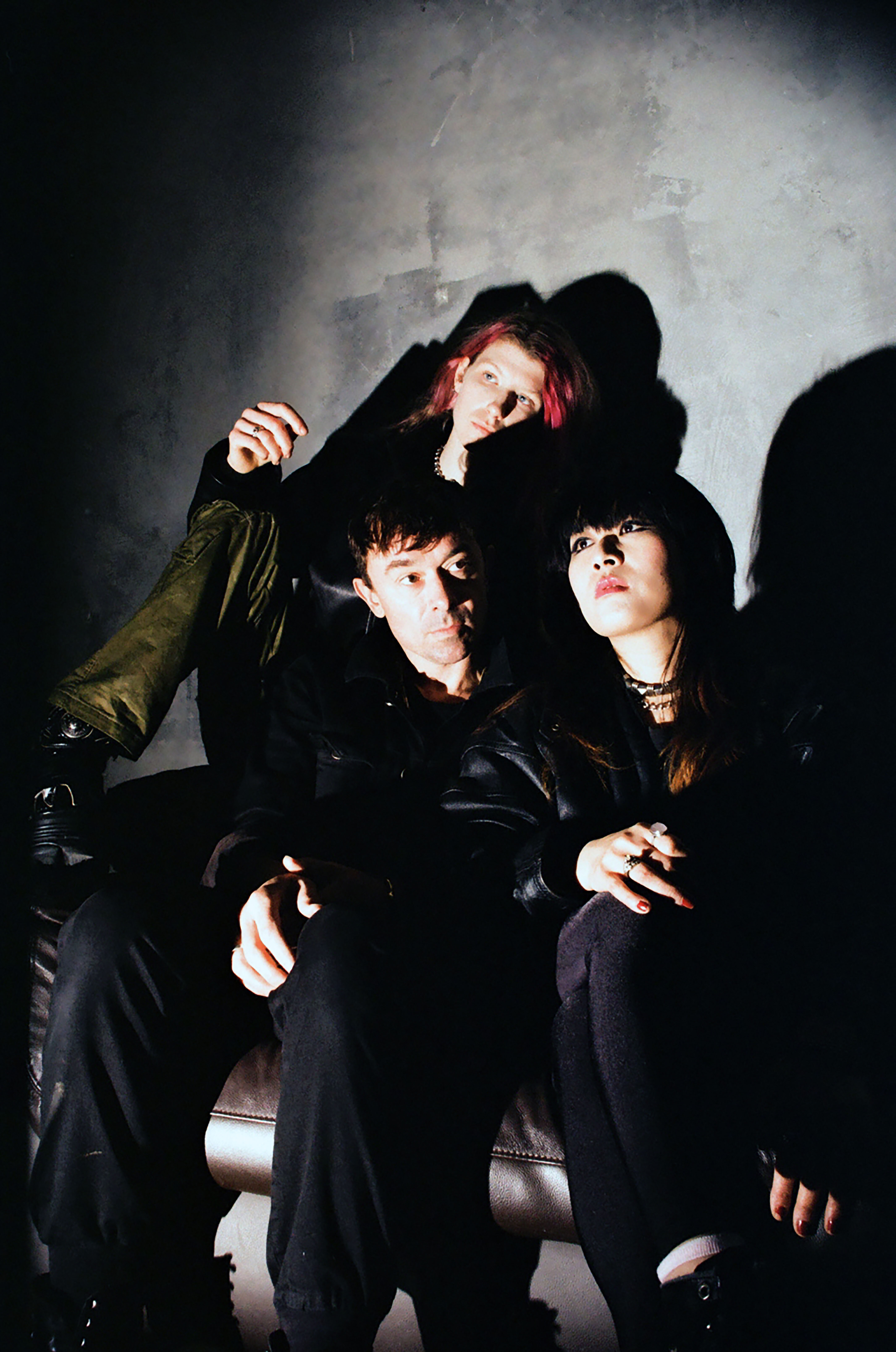
Photo: Ashley Rommelrath
Was there a particular moment on tour that you recall thinking, ‘This is what I need to do?’
It was more accumulative really. Until you really appreciate what it’s like playing to an audience, night after night, I don’t think you get your head into the right energy space. So I think that’s what happened, it was a kind of chemical thing.
And feeling that and understanding, ‘Right, this is what I’ve got to do now’. Songs like ‘No Angels’, one of the first ones I wrote coming out of that period, and ‘Love Spins On Its Axis’ was another that was more of a festival, hands-in-the-air type thing. Which you can’t really get by micro twiddling frequencies and shit.
How did you bring the band back together again after that time away?
I reconvened with Akiko on this record. I just thought if we’re gonna do The Big Pink again, if Milo’s not up for coming back on the road, at least let’s get Akiko back in the fold. We’ve always had revolving bass players. Leo Ross was in it for a bit, but now we’ve got Charlie Barker playing bass.
It was actually very daunting. Sometimes if you just throw yourself in the deep end, you get it done. But after the Wolf Alice tour, we went into the production for the record. Then lockdown happened, so there was a massive pause. You have this little baby you’ve been nurturing for so many years –you get so protective over it. We’ve been rehearsing for six months now, or more than that – not quite solidly, but pretty full on. I think it was me more than anything, trying to get back into the right headspace.
We just did a short tour, to whet our feet a bit, at the end of July. And it’s still a bit tricky; you forget the small nuances of playing live. And then you hit a bit more of a professional moment where we’re now back with all in-ear monitoring and we’ve got crew. I feel like we’re getting closer to being the professional the record deserves.
Well, let’s dive into the record. I read you describe ‘Safe and Sound’ – released as a single prior to the full album – as a track that encapsulates the whole album. What did you mean by that?
I think it’s a great title to find myself, because it could have gone so sideways. When you put yourself out and you risk everything – and I risked my marriage, my life, my family and myself in this mad cycle I found myself in out in L.A. – it just summed up the record. We’d done it, we’d returned home. We are safe and sound.
It was a real journey of self-discovery, and it was something I think I needed to do, psychologically, to be happy with who I am as a person, let alone as an artist. It needed to be done, for myself and for The Big Pink, which I guess goes back to the fact of being judged on it. I don’t care too much because this is more about that fact that I needed to get this done. And [now] I’ve done it, and it’s the best music I’ve ever done. I’ve been more truthful than I’ve ever been on these songs. I’m back in my home, physically and metaphorically. Life is wonderful and super exciting.
It sounds like writing this record was a real saving force in your life, then, in some ways…
Yeah, especially after the kind of success of The Big Pink on the first record, and the second; you fall in love with the concept and it becomes such a bigger thing, you become this third person. I feel there’s a sense of achievement; if I hadn’t had achieved this goal, I wouldn’t have been content with my life. I would always have felt there would have been something I hadn’t achieved.
One of my favourite movies and books is Heart of Darkness, which Apocalypse Now is based on. It’s about man’s journey down one’s own river, which can be confusing madness. The idea is to come to terms with your Colonel Kurtz at the end of your journey; to face your demon, overcome your demon and then make it back. And I think that’s psychologically how I see this record. It’s my journey down my river. And I did face my demons and I did beat the demons. We did get there, and I made it home.
Yes – safe and sound. Just to follow on discussion of your earlier work as The Big Pink. You had huge success with tracks like ‘Dominos’. What was that early success like?
It’s one of those things where you spend so much time, in theory, being a musician. But when ‘Dominos’ started to take off and it started to be a real thing, and you start getting known as The Big Pink and you get stopped in the street, you hear your song played every five seconds on TV; you’re playing festivals and you’re touring the world, it’s absolute madness. But an incredible sense of fulfilment. It’s like a dream. You can’t believe that finally you’re rubbing shoulders with musicians that you only dreamt what their life might have been like. It’s super exciting, super rewarding.
Then it’s incredibly difficult, after such a high, when you hit a lull, which every musician does. It can be very confusing. I’m in a wonderful place now where I don’t want to take any of it for granted at all. I want to make the most of every moment I’m given – even with the smallest things that come with doing this. I think we took a lot of it for granted at the time. It’s a nice place to be in – to be a bit more aware. Because it can come very quickly, and it can go very quickly. So I want to make sure I do everything I can.
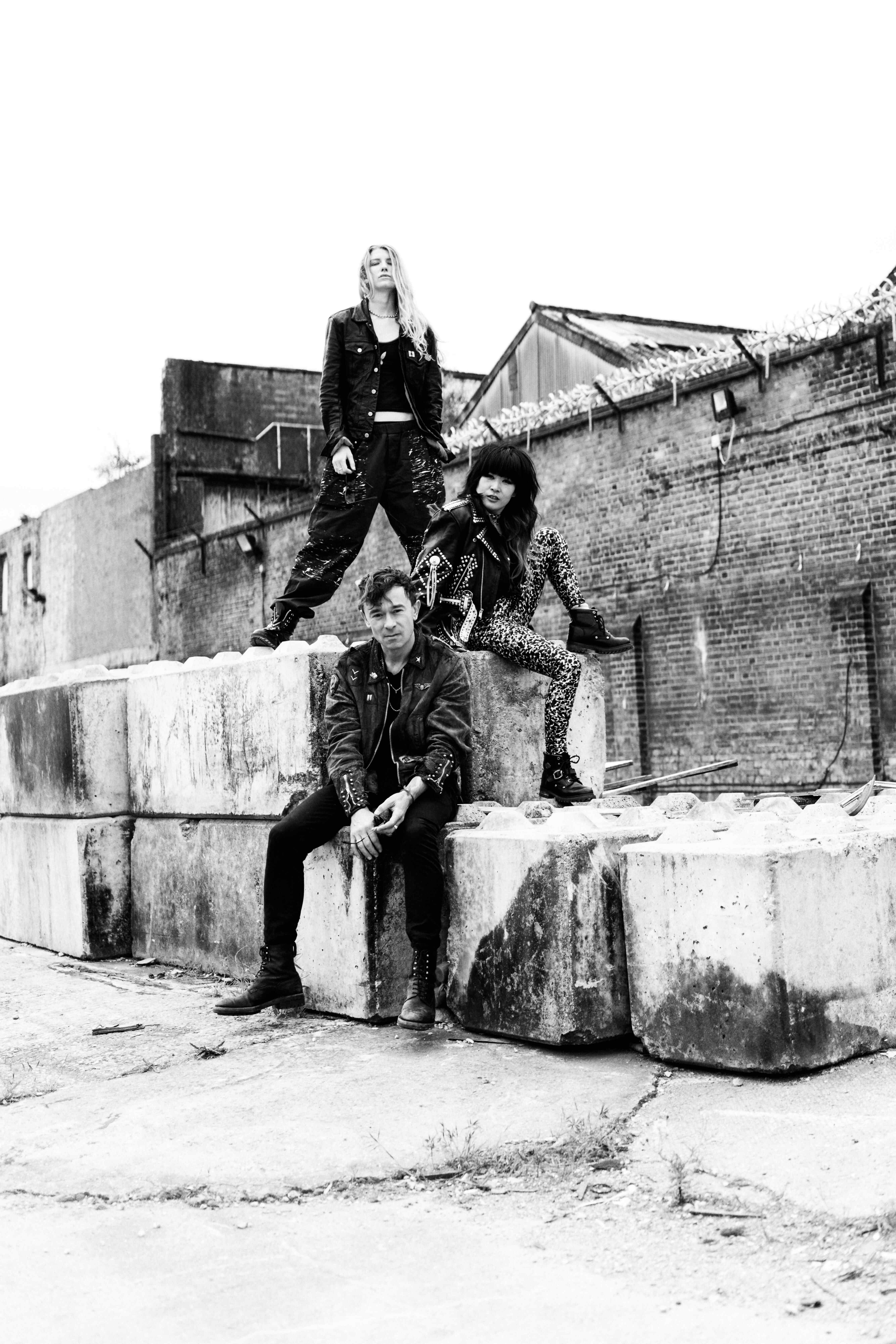
Photo: Emma Ledwith (Photography Limited)
You touched on your second album, Future This. I read you describing it as having neglected the essence of The Big Pink in some ways; that maybe it was a bit more rushed than your debut. Is that a fair assessment still?
I think it’s the classic thing: you have your whole life to make your first record, but have about five minutes to write your second. You always get the classic difficult second record. But I think at that time we assumed we could just write 12 songs. Jamie T actually, who’s written on my new record, said something very clever: ‘Just because it sounds like a song, doesn’t mean it’s a song.’ I think sometimes you forget that – just because it’s verse, chorus, it’s got some lines, and hooks and melodies and stuff, it’s not necessarily a song. Sometimes you fall into that naive way of thinking, and I think that’s what we did.
On our first record there was incredible sense of honesty and realness, because you’re uninhibited by any external necessity for success, or what people are going to think. I listen back to that first record, and there’s an amazing sense of confidence. I think that that’s why that record was so successful, because we didn’t give a fuck.
On Future This, I think there’s an underlying sense of uneasiness; like, ‘Is anyone actually gonna like this?,’ and, ‘We have to get it done quickly, or everyone’s going to forget about us’. I think it wasn’t as successful a record as A Brief History of Love – I think that was very obvious, because it didn’t do anything like the first record did. Even though I don’t think it’s a terrible record, it just doesn’t have the soul of the first. It touches on it, at times, but it doesn’t have that unspoken essence that A Brief History of Love had.
One of the first things I did, when I really wanted to solidify what I was going to do with The Love That’s Ours, was go back to the first record and started really looking into what I was doing that gave it so much depth. That’s what I wanted to try it with this record.
I think it’s a lot to do with being completely honest and saying stuff that’s heart-on-your-sleeve honesty. Painfully honest, maybe too honest. I hope that comes across on this record. There are no lies on this record, it’s all word-for-word, God’s honest truth; it’s exactly how I feel and my struggle and my perception of where I hope life can be.
That’s interesting, as I was also reading about when you and Milo first started The Big Pink. You told him that it doesn’t matter how you necessarily sound, but that you play with some kind of spirit – and that seems to be what you’re touching on. When he left the band in 2013, what was that situation like?
It wasn’t that dramatic. He never really liked touring. I’ve been in bands since I first started playing guitar, maybe 11 or 12. And, like you say, when we first started writing songs for A Brief History of Love, I said exactly that: ‘It’s not what you play or how good you are, just make noise and if it feels great, then other people will feel how great it feels.’
On ‘Crystal Visions’, our first song ever written together, we filled this room with this huge turbine-like noise. It was so exciting because it was no chords or structures or anything, it was just super visceral. And the song just came from this excitement, this backdrop of sonics. That’s what music is about for me, it’s about really understanding the essence of feel and energy.
Something that slightly contradicts what I’m saying is that on The Love That’s Ours, I’ve taken that kind of freedom but been presented it in a more structured sense; of verse-chorus, verse-chorus, because I think keeping things in a story arc makes it more exciting, because it’s more palatable for general listening.
I started working with people who really knew about the kind of rules and classical structures. I think it’s all just about learning how to be a better musician, but never forgetting the true essence of the message; like a sculpture, you’re just chipping away and polishing, but never leaving the core essence.
On that narrative arc, this album begins with ‘How Far We’ve Come’, so it feels very self-referential in some ways – this is as much a statement about The Big Pink as it is your third album…
Yeah, definitely. I feel I owe this record to The Big Pink. I feel we created a sound that I don’t think was fully explored enough. That song especially is not just being said to loved ones; I’m saying it to myself and The Big Pink. Look how far we’ve come; look what we’ve gone through; look at this thing we started, we can’t stop now, it would be mad to stop now. It’s such an exciting thing to be involved in and to just drop the ball now and throw in the towel and say, ‘Look, we made a couple of good records’… No, I’ve got more to say and here it is. So that was my battle cry: look at this thing we started.
And it fits well. As you said, you moved to L.A. at a time when indie and guitar music was kind of this dirty thing. But now there’s somewhat of a revival. There’s some exceptionally good guitar music at a time you’re returning…
Yeah, exactly. I was joking with a friend of mine, who’s also a musician, saying what I did was I wait for my genre to become cool again. Music always has cycles and I actually think lockdown was really good for guitar music because I think people wanted to feel again. I’ve worked with producers saying you’ve got to have everything in your first 10 seconds; that no one listens to live music for more than a minute, apparently.
That’s why all kinds of nostalgia bands came back after lockdown. People went back to true records that they loved. They want to feel the music again; feel the air between the guitar and a vocal and an amp; feel that drumkit, that kickdrum in your soul; feel that guitar amp washing over you.
That stuff that made me feel like I was special; that I was part of something secret that not the whole world knew about; that made me not want to end it all at different times in my life. Bands that made me want to want to carry on because it made me feel important. It made me feel I was in touch with the secret society and that music will save the world. I think we’re getting it now, I think people are understanding that more.
Indeed, bands and music have played a massive part in your life – just to state the obvious – but you were in a band before The Big Pink. A band called Nojahoda. What happened with that?
I was in a couple of bands. I was in Nojahoda when I was 18. It was a weird one. I was basically right out of school and didn’t really understand what the hell I was doing. I’d been skating and smoking a shit ton of weed, had no idea what I was doing with my life, and was just playing with this little punk band with friends. We were doing Nirvana covers and Beastie Boys shit, all this kind of stuff.
Then, suddenly we were in a studio, recording these songs. Then there was a bidding war and we signed to Sony. I was 18, it was a three-album deal and my personal advance on that third record was a million quid. So I was just like ‘I’m done’. We’d only played ten gigs. It was all mad.
This was around ’99, when the music industry was just throwing money at things. But it was a real learning curve. We even played Glastonbury. But about 18 months into the deal, I put my card into the cash point, and nothing came out. I called my accountant and said it wasn’t working. They said, ‘Yeah, ‘cause you’re broke’. I think we did three videos that cost about £250,000 each. Basically, the label just spent all our money for us.
So I was left with a giant tax bill. I was absolutely broke. I’d gone from thinking I was gonna be a huge rock star to having to take out a loan just to pay off my tax bill. That was me aged about 20: stone broke, having gone from the absolute opposite in my head.
You must have had to really rebuild after that, to get your life back together…
I decided I wasn’t going to take the easy route anymore. It was very pop-punk stuff that [Nojahoda] did. I actually then became a guitarist for Alec Empire, of Atari Teenage Riot. I saw he was putting a band together, and I was a big fan. So I called up pretending to be my own manager, saying, ‘Robbie Furze would be interested in being your guitarist.’ They said, ‘Come down for an interview’. So I went and they gave me the job. I was guitarist for him for about for about two years and we toured the world.
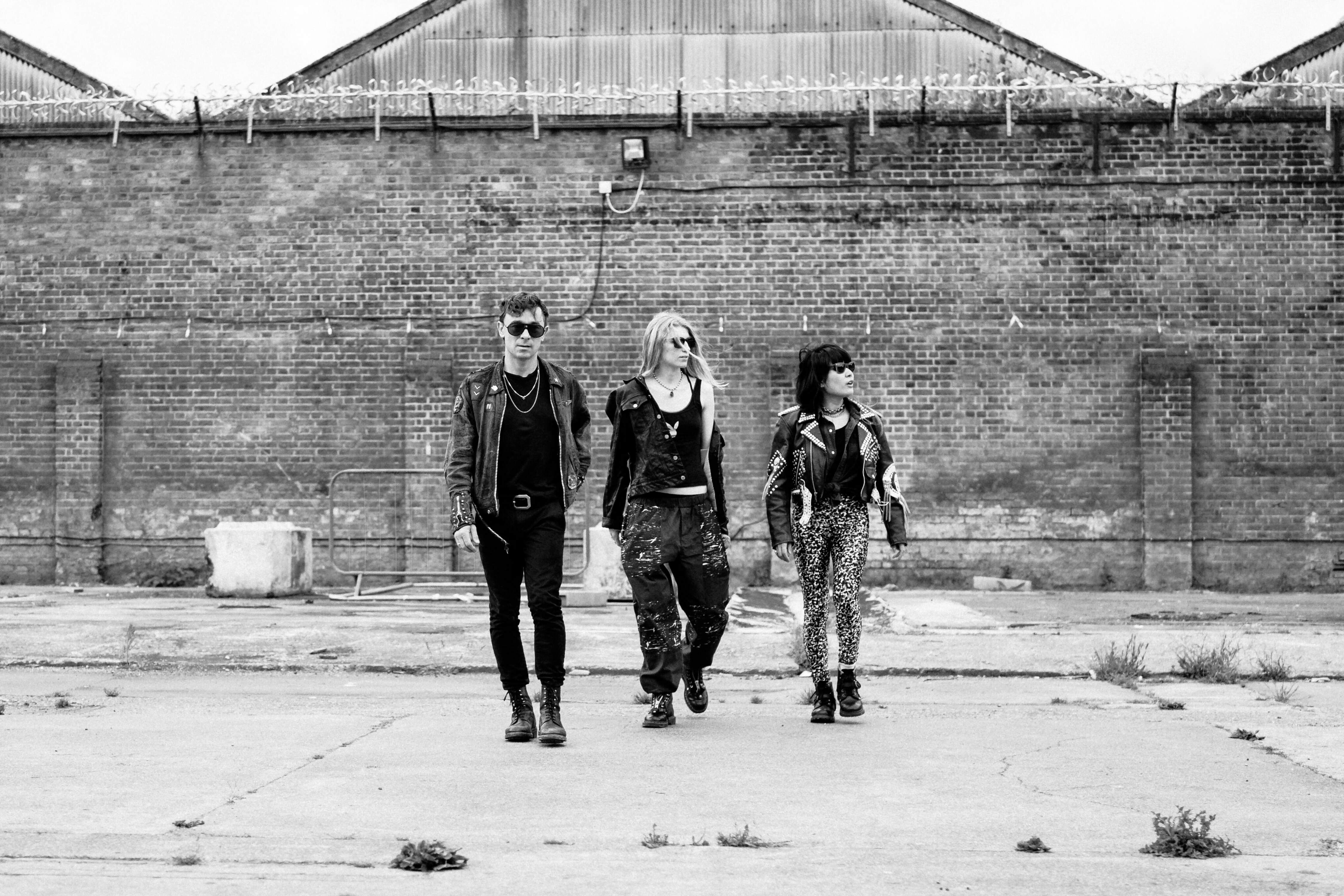
Photo: Emma Ledwith (Photography Limited)
Then I started a band on his label called Panic DHH, which was this kind of noise punk band. It was very fast, aggressive drum programming, and quite punk vocals. I toured that for about three years, around squats in Europe, living out of a van. I ended up in a terrible tour in the end and I threw in the towel after that. I couldn’t do that anymore – squat punk raves, I’d had enough. Then I came back and said to Milo we should start a band. The next day we wrote ‘Crystal Vision’.
Has Milo heard the latest record? What does he make of it, if so?
He has. He’s been very sweet about it. We’re all pals and he’s been very supportive. It’s always a little bit tricky because I sort of sometimes feel he jumped ship a bit. But if you don’t really love touring… I’ve toured. I’m not sure how much harder you could tour, the tours that I’ve done. And if you don’t love playing live music, touring is fucking tiring. It takes away everything; it takes you away from your family, you’re exhausted the whole time, you really push yourself physically.
So if you don’t really love playing live music – it doesn’t matter if you’re playing Wembley Stadium – it’s a fucking ball ache. [Milo] never really loved it, and I knew that. When he turned around to me and said, ‘Look, I’m done with this,’ I respected it. I said, ‘Well, I’m not done, so I’m carrying on.’ And that was how that conversation went down. It wasn’t aggressive, it was just he had done his bit.
So what are your ambitions for The Big Pink now, beyond this record?
I just want to be able to continue doing what I’m doing. I hope this stage will take me to the next stage; I hope I’m given the opportunity by my fans and by the world, to give me the platform to keep doing what I do. I want to play and tour the world, as I did on the last record, and I want to play to more people in bigger venues and do everything that bands do.
It’s a difficult landscape now, especially with bands that have been around for as long as us; it’s like, ‘Will I be given that opportunity?’ I hope so. I hope I’ve created a record that’s good enough to let me do that. I feel I have; I feel it’s the best I’ve done. I just hope that people get to hear it and with the right mind. I want them to feel what I feel, or else I haven’t done my job right.

